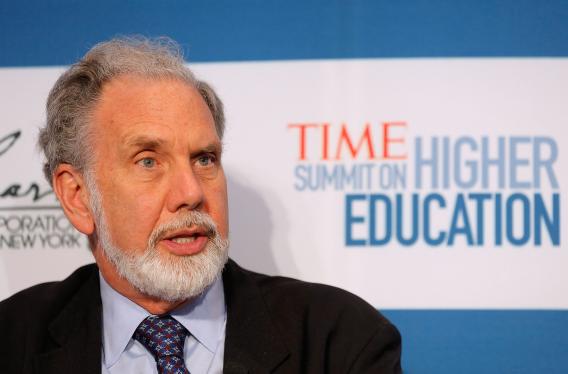A story by Ariel Kaminer and Alain Delaquérière in the N.Y. Region section of today’s New York Times is enraging people all over the Internet. The headline: “NYU Gives Its Stars Loans for Summer Homes.” “Stars” in this case means administration bigwigs and highly regarded academics, a few of whom have received favorable-sounding loans (some involving forgiveness provisions) in order to purchase second homes in popular vacation locales near New York City.
Given that NYU is among the most expensive universities to attend in the United States and its graduates are currently departing with startling levels of student loan debt, the story has understandably infuriated readers across the country.
There are defenders of NYU as well—though they seem to be fewer in number—who claim that this sort of perk is no different, really, than the many other benefits bestowed on top employees by NYU and other wealthy universities. In fact, given that these are loans, some of the money, at least, will be paid back. The school might even make a little money: While the interest rates are apparently favorable, the university is charging interest. On the other hand, according to one report, “in some cases, even the interest charged on the loans has been reimbursed.” These are not, it seems, ordinary loans, exactly.
But so what, the argument goes. Don’t universities throw all kinds of perks and benefits at top employees in order to keep them from bolting to other schools or to the private sector? How is this different than all the other sorts of compensation they offer?
And the answer is: It’s not, at least in some respects—and that’s the problem.
Considered in the full context of what top universities give to chief executives and superstar academics, these loans for summer homes are largely symbolic—that is, they symbolize the rather revolting disparities in pay that exist in American higher education and which have worsened at a time when more and more students are drowning in debt that they took on to pay their college tuition.
At the Chronicle of Higher Education, Claire Potter, a professor at the New School, notes that she has in the past been “the recipient of two separate below-market-rate mortgages.” These were apparently for primary residences and for much smaller sums than those quoted in the NYU story. Her point, though, is that the broader practice of cheap loans as a form of compensation is not unusual in academia. But that doesn’t make the NYU revelations any less of a “scandal,” in her words.
As Potter notes, the NYU revelations follow the recent nomination of a former executive vice president of the university, Jacob J. Lew, to head the Treasury Department. During his hearings lawmakers learned that NYU gave him a $685,000 bonus when he left NYU, voluntarily, for a job at Citigroup. Another former executive received more than $1.2 million upon his departure. And the current president, John Sexton, who got one of those favorable loans for a summer home, will receive an annual pension of $800,000 when he retires—which, if he does so after 2015, will follow the $2.5 million “length of service” bonus he’s set to receive on top of his $1.5 million annual salary.
In the meantime, NYU is defending itself from charges levied by a Chinese dissident, Chen Guangcheng, who says the university bowed to pressure from the Chinese government in not renewing his fellowship. (NYU recently received approval from China to open a campus in Shanghai.) It’s not clear that the charges are fair; the fellowship was only for one year and NYU reportedly received the approval it needed for its Shanghai campus well before the fellowship ended. But in the midst of a largely sympathetic piece about the controversy, Marc Tracy, at the New Republic, notes that NYU “increasingly appears to be building itself less like a university and more like a for-profit corporation.” It “is not,” he adds, “the most sympathetic institution right now.”
Potter goes further. “It’s time,” she says,
to investigate the various shenanigans by which wealthy universities retain their non-profit status; rely on vast amounts of temporary, student and non-union labor; maintain vast wage disparities between faculty; spend millions on athletic programs that are disconnected from the academic mission all the while charging high tuitions and running shell games that allow them to shovel millions of dollars towards their executives and stars.
Sounds about right.
